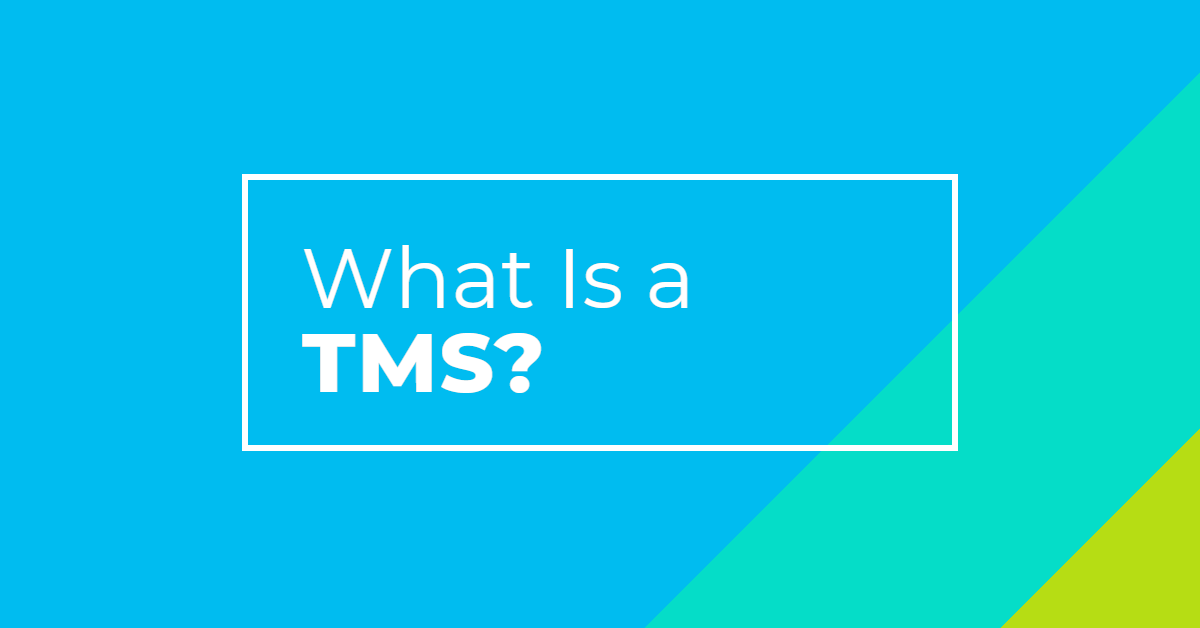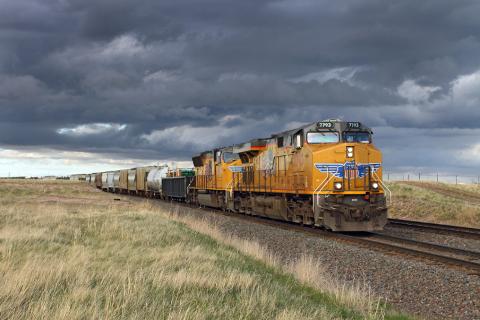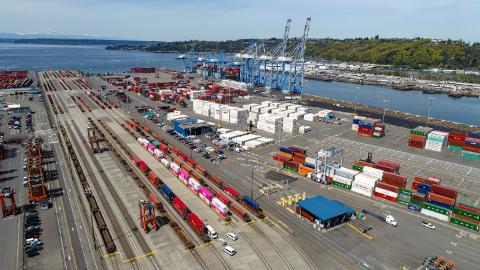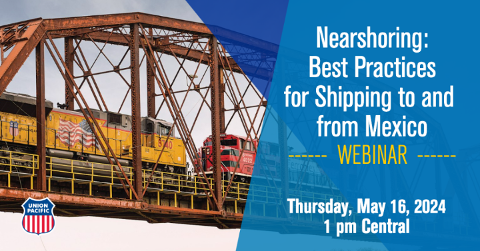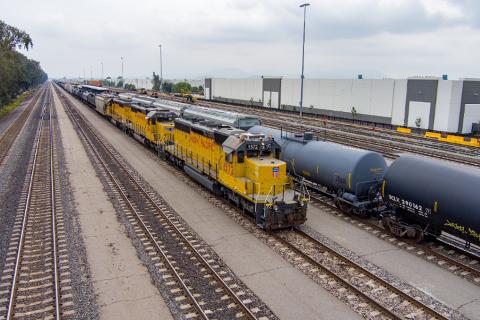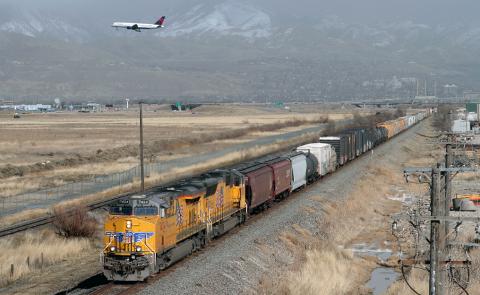If you’re in logistics, you’ve probably heard the term “TMS,” but do you know what it means? If you’re looking for a simple definition and answers to the frequently asked questions about transportation management systems, we’ve got you covered.
What Is a TMS?
TMS stands for “Transportation Management System.” A TMS is often a subset of a larger supply chain management system that is focused specifically on transportation operations. In essence, a TMS is the underlying operating platform for any logistics operation or supply chain. By helping organizations plan and coordinate the shipping, tracking and delivery of freight, a TMS is intended to streamline the shipping process. If you are in logistics, this type of platform can assist with the planning, execution and optimization of moves.
Why Is a TMS important?
A TMS can help your operation (and your team) perform more efficiently and streamline the shipping process. A TMS can offer you enhanced visibility into your operation, allow you to compare rates, help you simplify processes, reduce costs, save time and provide better service to your customers, among other things.
What Kind of an Investment Does a TMS Require?
The price you pay for a TMS will depend on the platform and partner you choose as well as your licensing agreement. Beyond price, it’s important to know that a TMS is a long-term investment of your time and dollars and will require a long-term partnership with the provider you choose. Oftentimes, it takes years to get a new TMS up and running and integrated into your organization, and companies can expect to see an ROI in 5 to 10 years. However, most organizations leverage their TMS platforms for well beyond 10 years.
What Are the Different Types of TMS Platforms?
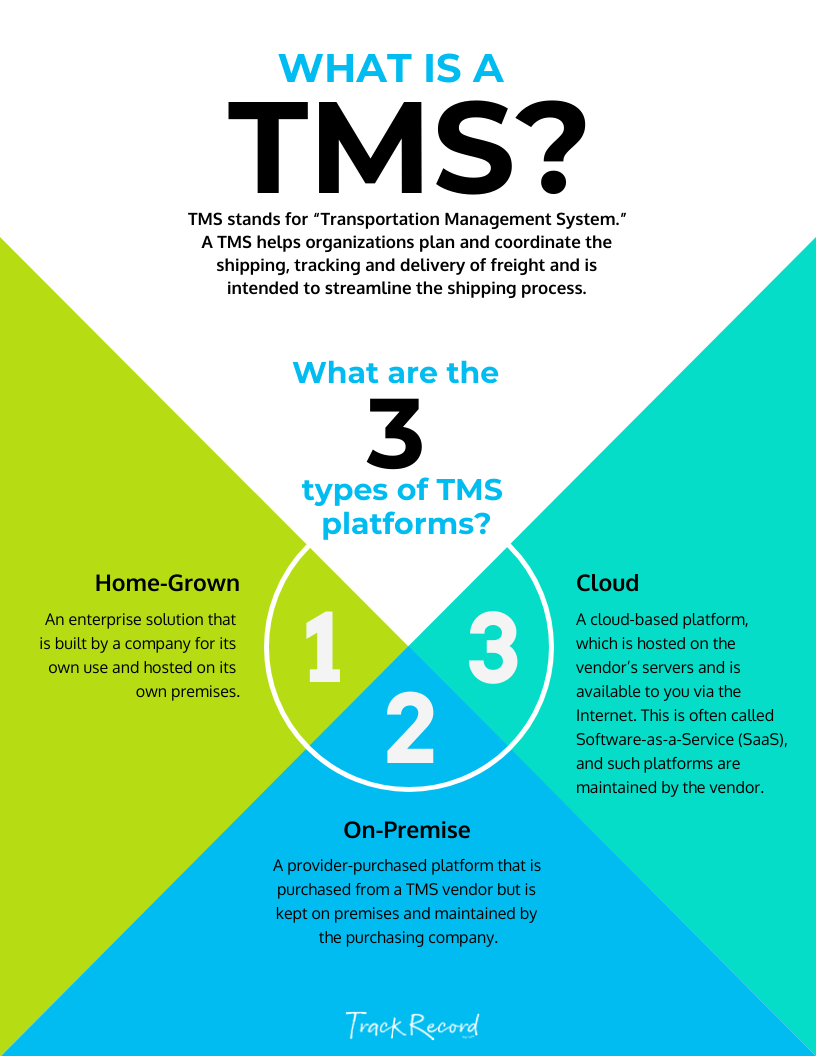
Download a printer-friendly PDF of the TMS Infographic
In general, there are three types of TMS platforms:
- Home-grown: An enterprise solution that is built by a company for its own use and hosted on its own premises.
- On-premise: A provider-purchased platform that is purchased from a TMS vendor but is kept on premises and maintained by the purchasing company.
- Cloud: A cloud-based platform, which is hosted on the vendor’s servers and is available to you via the Internet. This is often called Software-as-a-Service (SaaS), and such platforms are maintained by the vendor.
When Should You Replace Your TMS?
While many companies keep their TMS for 10 or more years, several factors may prompt a company to update their TMS, including:
- the age of an existing TMS
- technology upgrades
- changes in the supply chain industry
Looking for Ways to Optimize Your Supply Chain?
If you’re looking for ways to optimize your supply chain, let us know. We can put you in touch with a logistics expert who can help.
Related Articles
- How to Be the Best Logistics Manager: 10 Secrets for Success
- The Port-to-Store Movement: Big Picture Thinking for Supply Chain Success
- APIs Are Changing the Logistics Landscape — Are You Ready?
- Four Ways to Reduce Fulfillment Expenses
- So You Have to Cut Transportation Costs. What Do You Do Now?

